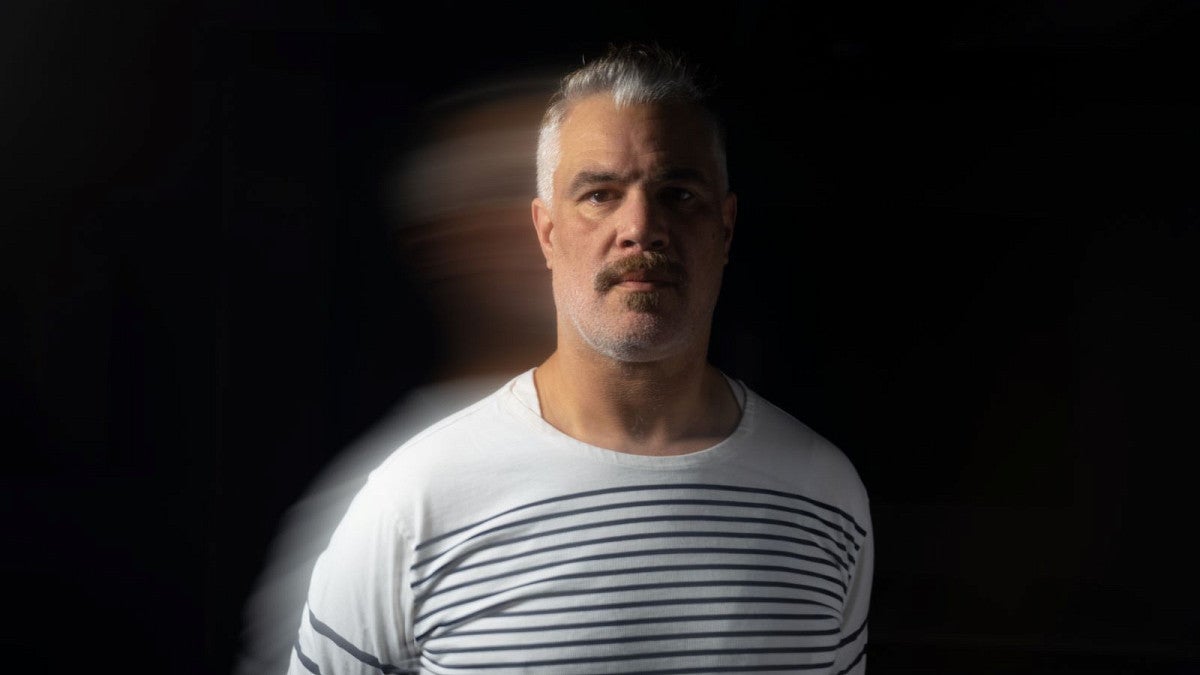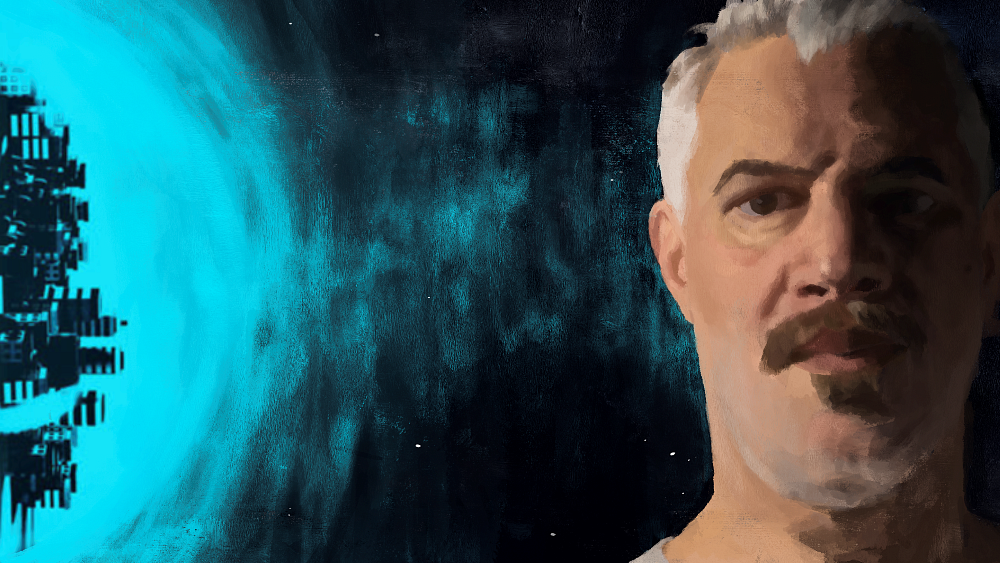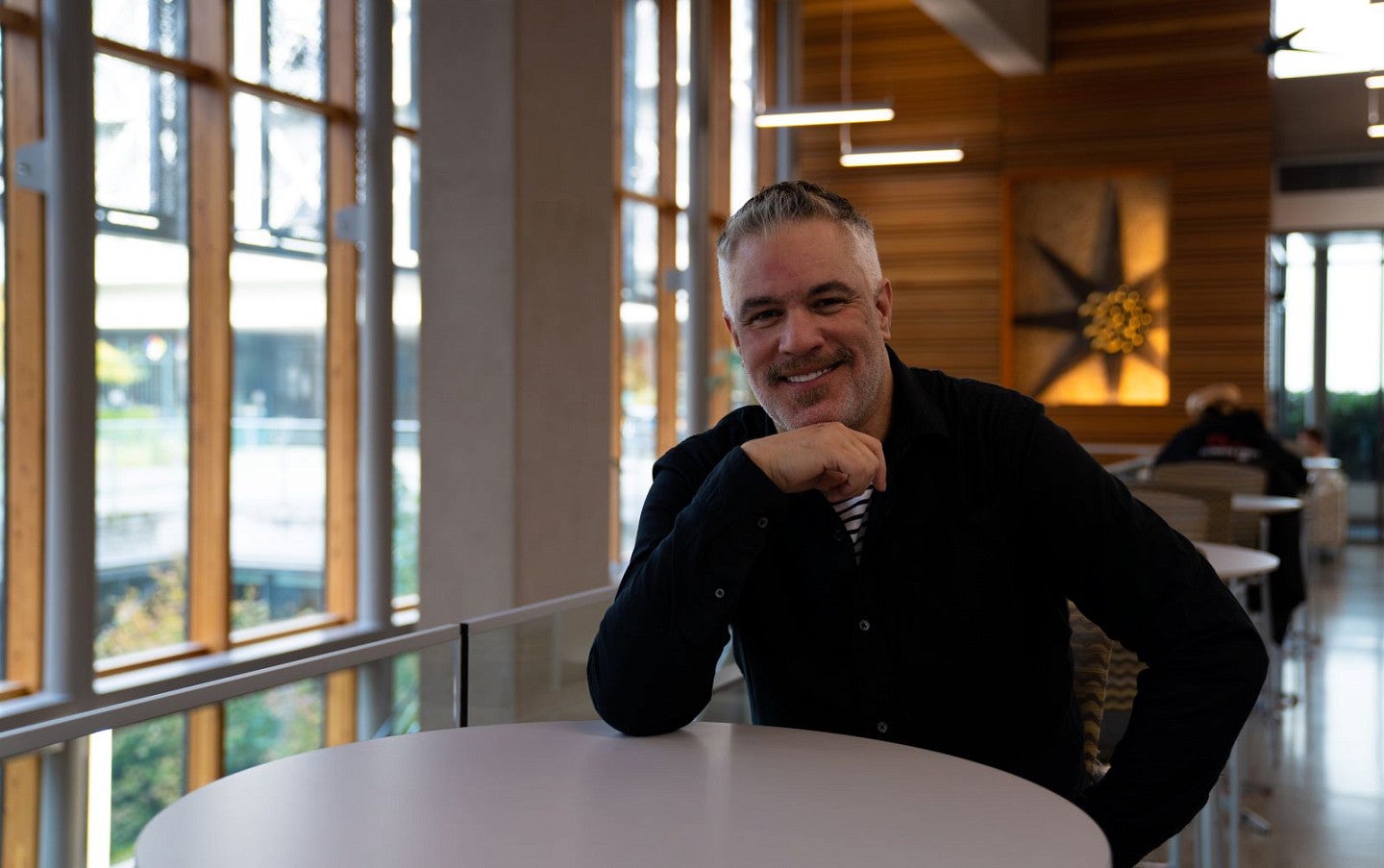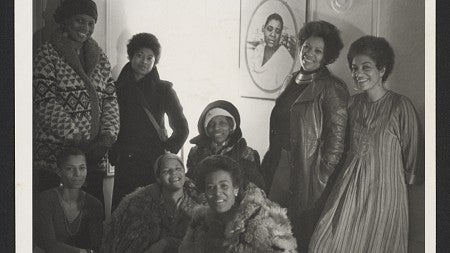
Gaining Visibility with Invisible Things
With his latest novel, UO faculty member Mat Johnson is getting critical notice while inspiring his creative writing students
Turns out that even in space, politics feel just like they do at home.
Partisan tribes living on a moon of Jupiter shout at one another in the sci-fi world of Invisible Things, the new novel by Mat Johnson, an author, screenwriter, and Philip H. Knight Chair at the University of Oregon.
The bubble city of New Roanoke functions like any American city, protagonist Nalini Jackson explains, “with a largely bifurcated political culture.”
New Roanoke is dominated by the Founders Party and the Party of the People. But Jackson, a sociologist, realizes the two-party system is a fallacy—she’s observed nuanced political subgroups: the miserable Malcontents, the “don’t care” Floater majority, and the privileged, upper-class Beneficiaries, for example. Power belongs to whoever can control the narrative about the city’s origin.
But how far will they go to push their agenda? How far will Americans go?
“I go into a book with a question, and if I’m lucky I get closer to the answer by the end,” says Johnson, whose literary talents are gaining visibility and supporting his work as an educator. Loving Day (2015) graced the cover of the New York Times Book Review and 2022’s Invisible Things, his fifth novel, won praise from the Washington Post, the Los Angeles Times, and NPR’s Fresh Air, where he’s become a regular contributor. Johnson is a recipient of an American Book Award and the United States Artist James Baldwin Fellowship. When he’s not on campus, Johnson’s at work on scripts for Apple TV+ and Netflix, among other producers.
Johnson wrote Invisible Things partly in 2020 and 2021, as Americans fought over the facts of a global pandemic, human-caused climate change, the integrity of the voting system, and the nation’s legacy of slavery. Some accepted widely held truths; others doubled down on denialism.
Johnson asks: what will wake people from their partisan trance and accept the existential crisis facing many Americans—and especially Black Americans such as him?
How about invisible forces crushing skulls?
Johnson orients the allegorical Invisible Things around deadly, unseen, all-powerful aliens as surrogates for the inconvenient truths that underpin our society and influence our lives. If we try to deny they exist, they might just kill us. In fiction as in real life, whether we choose to acknowledge these truths places us with a group, a tribe. Facts wax political.

From Columbia University, with a Style Tailor-made for Twitter
Born in Philadelphia in the early ’70s to a White father and a Black mother, Johnson says mixed-race identity wasn’t an established concept. Though he saw his father regularly, he mostly grew up with his mother in a Black neighborhood. Light-skinned, Johnson looks White, but because he was raised culturally African American, he says, the White world was largely inaccessible to him.
Books, however, were.
“I had a lot of time alone, and I got really into story,” Johnson says. “I was not a strong reader early, so my mother got me to finally learn to read and keep it going by buying me comic books.”
Comics were his first literary love, eventually leading to paperbacks. Johnson earned a bachelor’s in English at Earlham College and a master’s in creative writing at Columbia University. Needing cash, he started teaching soon after, first at Columbia, then Bard College. He taught creative writing at the University of Houston from 2007 to 2018, then joined the English and creative writing departments in the UO College of Arts and Sciences.
Johnson was surprised to find himself a professional writer. “I didn’t decide I really wanted to write,” he says, “until I realized I just didn’t want to do anything else nearly as much.”
For people of color, getting recognition as a writer used to be about satisfying a specific taste at the publishing house, Johnson says—and there wasn’t a huge appetite. “I didn’t fit into the mold of what a Black writer would be; I didn’t look particularly Black, “Johnson says, “so I was not going to be that one.”
At first, attention came not from the literati, but from social media.
“The style of writing I was doing—satirical, quick, funny—translated really well to Twitter,” he says. With more than 80,000 followers, Johnson used Twitter to circumvent the literary gatekeepers who dictate what is promoted to critics.
The Twitter reaction ultimately helped Johnson embrace his voice.
“One of the things I try to emphasize with my mentees is that you don’t get to be the writer you want to be; that your success is based on how well you become the writer that you are,” Johnson says. “It was a big moment for me to accept that, to accept I’m not Toni Morrison.”
Inspiration in the Creative Writing Program
A. J. Rodriguez, a mentee who graduated last spring with an MFA in creative writing, says Johnson’s ability to help writers hone their voice was invaluable to him, especially as a Chicano writer who wanted to tell his community’s stories.
“Mat understands that each writer has a different heart beating within their work,” Rodriguez says. “So rather than fashion his students’ art along some uniform standard of craft, he allows it to come to life by helping the writer tap into its emotional pulse.”
“You don’t get to be the writer you want to be; your success is based on how well you become the writer that you are.”
Jen Li, another 2022 MFA graduate, calls Johnson “brilliant” and says as a writer of color, she’s fortunate to have worked with him.
“He encouraged me not to give up—to keep writing because these are the stories that are important to me,” Li says, “which means that they are important to the world as well.”
Showrunner for Showtime
Along with teaching creative writing to undergrads and graduate students, Johnson is also a faculty member in the first-of-its-kind Comics and Cartoon Studies program (he’s published five graphic novels).
Johnson’s chops as a visual storyteller and budding screenwriter have deepened his teaching. After Loving Day was optioned for a series by Showtime, Johnson learned to be a showrunner, a role that made him the story director. The project was discontinued but the experience taught him he enjoyed the work of leading a writers’ circle. Now regularly working in Hollywood, he’s developing several scripts for series.
Johnson believes screenwriting keeps him relevant for students today.
“Research institutions like the UO want people who are actually doing things in the field in a big way,” Johnson says. “So it’s not like I have a side job. I’m doing something else that makes me more attractive to the students who are here and to grad students who are going to be applying.”
Anna Glavash Miller, MS '18 (journalism), is a public information representative in the College of Arts and Sciences.





